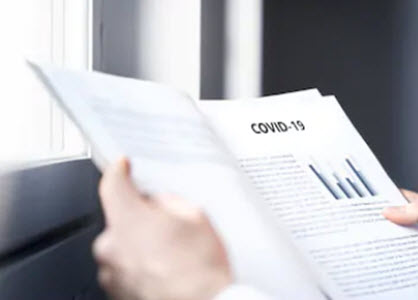Alabama Senate Considers Bill to Protect Business Owners from Coronavirus-Related Lawsuits
After weeks of economic stagnation because of the COVID-19 pandemic, Alabama is ready to take steps toward reopening. Although 298 people in Alabama have died from COVID-19 in Alabama, and 8,112 people have tested positive for the virus, the financial worries are what many people in Alabama will remember the most about the pandemic. Restaurants, retail stores, hair salons, and gyms being able to reopen for business will only solve part of the problem; even the best-case scenario is a long road to economic recovery. Businesses will need to implement infection control procedures, which will cost money, whether because it means buying additional supplies or keeping more employees in the store so that they can keep up with the new cleanliness standards. A bill currently under consideration in the Alabama Senate aims to protect business owners from costly lawsuits related to the coronavirus. Even if the bill passes, business owners will face important and difficult financial and legal decisions about reopening. It is a good idea to discuss your plans with an Alabama small business lawyer.
Liability Protection for Businesses After Reopening
Premises liability lawsuits are a major worry for business owners. A customer who gets injured or falls ill because of unsafe conditions at a place of business can sue the business for premises liability. Common examples of premises liability lawsuits are when a customer gets injured after falling down on a wet floor that was not properly marked or when a customer at a restaurant requires hospitalization for food poisoning because of substandard food safety practices at the restaurant. As Alabama takes steps toward allowing its businesses to reopen, and business owners try to decide when and how to reopen, the question looms large as to what will happen if customers or employees fall ill after being exposed to coronavirus at a place of business.
SB351, sponsored by Senator Arthur Orr, will not make it impossible for customers to sue businesses where they allege that they were exposed to COVID-19, but the burden of proof will be on the plaintiffs to show that the defendants intentionally created unsafe conditions or were egregiously careless about the spread of infection. The bill will also protect healthcare providers from being sued for providing less than ideal care to patients during times when they had no choice but to divert more personnel and supplies to caring for COVID-19 patients. Workers who become infected with COVID-19 at work can file workers’ compensation claims so that their employers’ workers’ compensation insurance can pay for their treatment. In workers’ compensation claims, negligence is not an issue; if the worker can prove that their illness resulted from work, the employers’ workers’ compensation insurance will pay for the treatment.
Let Us Help You Today
A business law attorney can help you make wise decisions about avoiding liability when reopening for business after the stay-at-home orders end. You might need to revise your plans for the near future to operate in the post-pandemic economy. Contact the Alabama business & corporate litigation attorneys at Cloud Willis & Ellis for help today.


